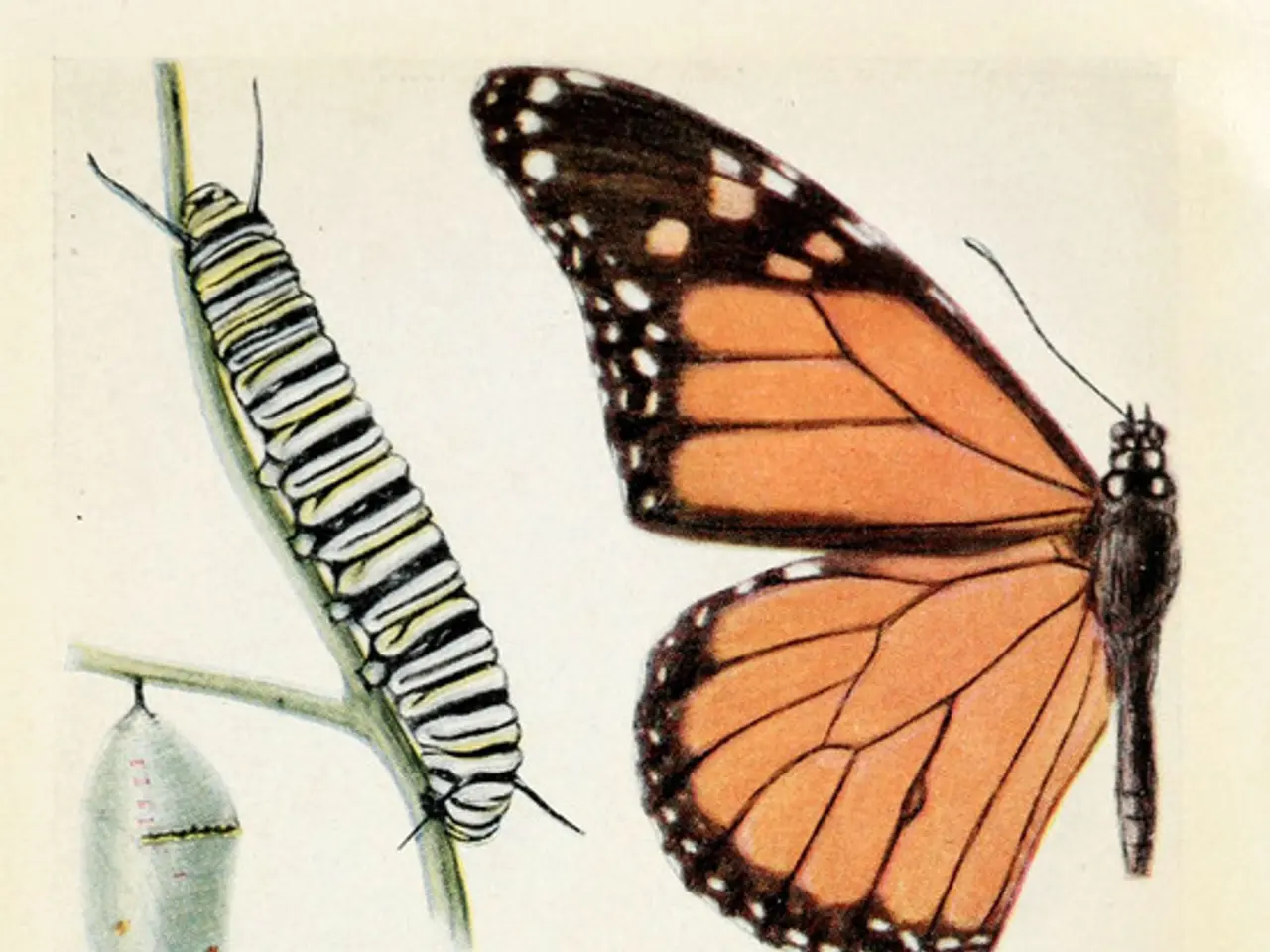Humans Continue to Evolve: Discreet Transformations Happening in the Present
In the ongoing saga of human evolution, four key factors have taken centre stage. These are sexual selection, genetic drift, epigenetics, and human-made environments.
Sexual selection, a powerful force in shaping traits that enhance mating success, has played a crucial role in modern human evolution. Traits that boost attractiveness or dominance, such as physical features or behaviours, have been favoured, leading to sexual dimorphism and mate competition in humans and other species. This influence is evident in the spread of blue eyes across Europe about 8,000 years ago, a result of a mutation in the OCA2 gene.
Genetic drift, a process causing random changes in allele frequencies within populations, especially in small or isolated groups, has also impacted human evolution. This can lead to genetic differentiation without necessarily providing adaptive benefits. For instance, up to 40% of people in some populations never develop wisdom teeth, a clear example of evolution in motion, eliminating unnecessary traits.
Epigenetics, involving heritable changes in gene function, has emerged as another significant factor in modern evolution. Mechanisms like DNA methylation or histone modification can respond to environmental factors and potentially be passed across generations, thereby influencing phenotypes and evolutionary trajectories without altering the underlying DNA.
Human-made environments, including urbanization, technology, culture, and medicine, pose novel environmental conditions and selective pressures. These can alter patterns of survival and reproduction, potentially accelerating or redirecting evolutionary changes by affecting lifestyle, disease exposures, and mate selection processes.
These combined factors contribute to the complex and ongoing process of human evolution in the modern era. Populations with certain immune system genes may be more resilient to specific viruses or bacteria. Our dependence on technology may be reshaping how we think and process information, with brains potentially adapting to virtual environments, algorithmic feedback loops, and 24/7 access to information.
City life, new in evolutionary terms, may lead to neurological and immunological differences between urban and rural populations, better adapted to modern life but potentially more vulnerable to mental health challenges. Researchers are already tracking which HLA gene variants offer better protection against viruses.
People today are having children later in life, which could lead to a genetic shift toward later-life reproduction and longer reproductive lifespans. Lactose tolerance, evolving in over 35% of the global population, particularly in Northern Europeans, is due to a genetic mutation that allows lactase production to continue into adulthood.
Widespread pandemics like COVID-19 apply sudden, intense evolutionary pressure. For example, the sickle cell gene persists in malaria-endemic regions of Africa because heterozygous individuals are more resistant to malaria. Tibetans have a genetic mutation that allows them to thrive in high-altitude environments, with better oxygen delivery and fewer red blood cells.
As we become more aware of our evolution, it becomes possible to study it, influence it, and even guide it. Technological advancements, such as CRISPR or other gene-editing tools, open up possibilities for engineering desirable traits like disease resistance, high intelligence, or extended lifespans. However, these advancements also present ethical challenges that society must address.
The next stage of human evolution might be the most fascinating of all, as we continue to adapt and evolve in response to our rapidly changing world.
- Human-made environments like technology, urbanization, and culture have introduced novel selective pressures in our evolution, potentially altering patterns of survival and reproduction.
- Epigenetics, which involves heritable changes in gene function, can respond to environmental factors and, in turn, influence phenotypes and evolutionary trajectories.
- Education about nutrition, health, and wellness is essential in shaping our understanding and care for our bodies, as physical traits can be favorable in mating selection processes.
- In the realm of career and science, medical advancements like CRISPR technology offer possibilities to engineer desirable traits, but they also present ethical questions about the line between nature and nurture.
- Traveling broadens our cultural understanding, offering a glimpse into the rich history of various traditions and beliefs around the world.
- The culinary aspect of food serves as a bridge between cultures, providing nutritional needs while fostering connections with people from different backgrounds.




